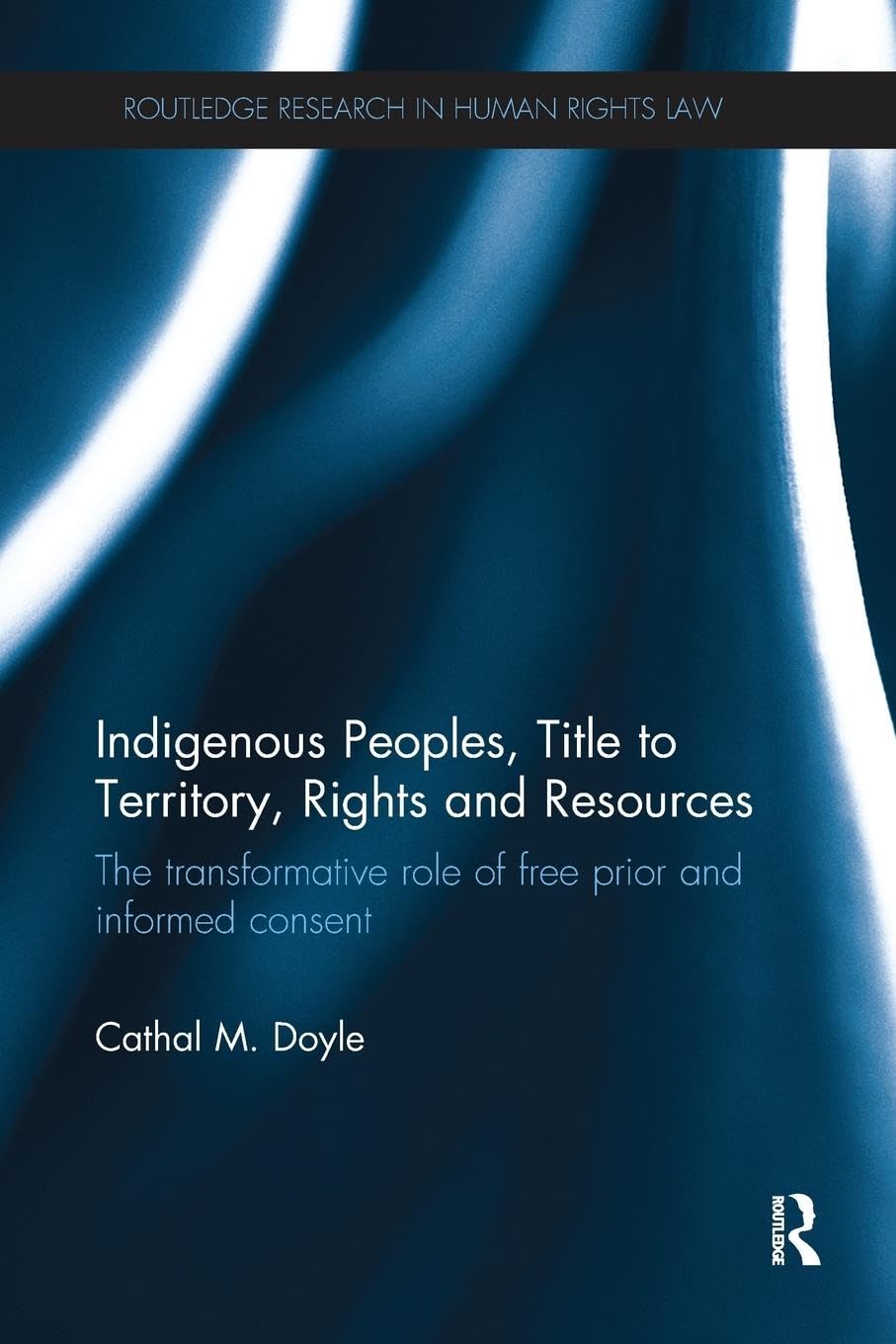Indigenous Peoples, Title to Territory, Rights and Resources: The Transformative Role of Free Prior and Informed Consent (Routledge Research in Human Rights Law)
Indigenous Peoples, Title to Territory, Rights and Resources: The Transformative Role of Free Prior and Informed Consent (Routledge Research in Human Rights Law) is backordered and will ship as soon as it is back in stock.
Couldn't load pickup availability
Genuine Products Guarantee
Genuine Products Guarantee
We guarantee 100% genuine products, and if proven otherwise, we will compensate you with 10 times the product's cost.
Delivery and Shipping
Delivery and Shipping
Products are generally ready for dispatch within 1 day and typically reach you in 3 to 5 days.
Book Details
• Format: Paperback
• Language: English
• ISBN-13: 9781138280465
• Author: Cathal M. Doyle
• Publisher: Taylor & Francis Ltd
• Pages: 350
• Binding: Paperback
Description:
The right of indigenous peoples under international human rights law to give or withhold their Free, Prior, and Informed Consent (FPIC) to natural resource extraction in their territories is increasingly recognized by intergovernmental organizations, international bodies, and industry actors, as well as in the domestic law of some states. This book offers a comprehensive overview of the historical basis and status of the requirement for indigenous peoples’ consent under international law, examining its relationship with debates and practices pertaining to the acquisition of title to territory throughout the colonial era.
Cathal Doyle examines the evolution of the contemporary concept of FPIC and the main challenges and debates associated with its recognition and implementation. Drawing on existing jurisprudence and evolving international standards, policies, and practices, Doyle argues that FPIC constitutes an emerging norm of international law, derived from indigenous peoples’ self-determination, territorial and cultural rights. It is fundamental to the realization of those rights. This rights-consistent version of FPIC ensures that responses to questions and challenges posed by the extractive industry's pervasive reach will be provided by indigenous peoples themselves.
The book will be of great interest to students and researchers of public international law, indigenous peoples, and human rights.





